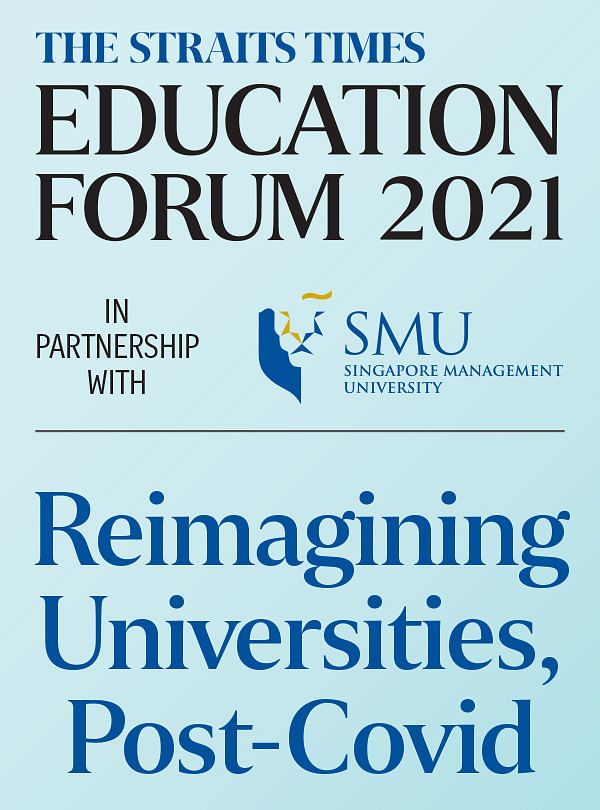More of curriculum online may not translate into lower education costs
Sign up now: Get tips on how to help your child succeed
The Government watches the cost of higher education "like a hawk", and having more parts of the curriculum going online does not necessarily mean costs are lower, said Education Minister Lawrence Wong yesterday.
Manpower costs for faculty and staff are a key cost component for all universities, even overseas institutions, and these staff are needed to keep things going and to provide a good learning experience for students, he added.
Speaking at The Straits Times Education Forum 2021 on Reimagining Universities, Post-Covid, Mr Wong said that keeping university fees affordable has and will continue to be a key priority for his ministry.
"There is a view that, 'So much of this is going online, surely it can be cheaper,'" he said.
"Yes, if everything is 100 per cent online, sure, but that's not a university education.
"You're not going to get a university education by going online and signing up to MOOCs (massive open online courses) and doing it for four years.
"So it will be hybrid, it will be blended, which means that faculty will still be required."
But he stressed that the Ministry of Education (MOE) will continue to ensure generous subsidies for university education in Singapore.
This has been done to prevent mounting student debt problems that are prevalent in other countries.
Beyond the subsidies, there is also a range of bursaries MOE has recently enhanced, he said.
"We have done it not just for the lower-income (group), but bursaries go up to the middle-income (group).
"And I think that's the right approach, because it ensures a progressive system."
For example, those with a gross monthly household income of $6,901 to $9,000 or per capita income of $1,726 to $2,250 are eligible for bursaries.
This applies to full-and part-time Institute of Technical Education Nitec and Higher Nitec students, polytechnic students and university undergraduates.
Bursary quantums have also been increased.
Those who are well off can pay the subsidised fees, said Mr Wong.
"But for the families who have difficulties - the lower-income, even up to the middle-income (group) - generous bursaries are provided by the Government, and the universities themselves have their own sponsors and donors to help support these children as well."

However, one point raised at the forum by speakers was that even with fees made more affordable, some parents may still want their children to enter the workforce early to generate income and forgo their studies.
Addressing this, Mr Wong said: "It may be so. But I think that we will then have to look at this in different ways.
"We can, for example, help the families through other means, not necessarily through MOE and the universities, but through other (forms of) social assistance."
The student could also consider work-study programmes, he said, adding that even if the student does wish to go out into the working world, he or she can continue one's education at a later time, he added.
A polytechnic graduate, for instance, could decide to look for a job first.
"But it doesn't mean that you're forgoing your chance to get a degree," said Mr Wong. "You can do so later in life as well."


